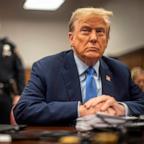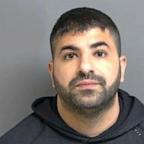Senate report says wealthy use foreign banks to evade taxes
— -- One operates an estimated $63 billion portfolio of 118 shopping centers and malls in the U.S., United Kingdom, Australia and New Zealand.
Another manufactures and markets toys through a company with an estimated $35 million in annual sales and corporate offices in New York City, Holland, Hong Kong and Taiwan.
And a third is a Florida-based construction contractor who reportedly amassed more than $49 million in family assets.
Along with wealth and success, the three have something else in common, a Senate report set for release Thursday says: All were clients of an overseas bank whose financial practices "can facilitate, and have resulted in, tax evasion by their U.S. clients."
The report asserts that Swiss banking giant UBS and LGT, a large bank in the tiny European principality of Liechtenstein, actively helped wealthy American clients evade federal taxes. Since 2001, the banks collectively held thousands of U.S. client accounts with billions of dollars in assets that weren't reported to the IRS, according to the report by the Senate Permanent Subcommittee on Investigations.
Starting in 2001, many foreign banks, including UBS and LGT, agreed to a new federal requirement to report and withhold U.S. taxes on assets in accounts held by American clients. The Senate investigation found that instead of complying, the banks actively helped those clients structure their accounts to avoid reporting billions of dollars in assets. Clients were sometimes told to use code words when communicating with the banks and to avoid bringing account records into the U.S., investigators found.
The assertions come amid intensifying investigations fueled in part by internal records and information given to tax authorities in the U.S. and other countries by former employees of the Switzerland and Liechtenstein institutions. The probes pit tax-enforcement laws in the U.S. and other nations against the secrecy that banks in Switzerland and Liechtenstein have long marketed to their clients.
The Senate panel's case studies of some of the banks' clients, compiled in part from documents and assistance provided by the former employees, "pierces the veil of secrecy" that has long protected the banks and their wealthy clients, said Sen. Carl Levin, D-Mich., who chairs the subcommittee.
"The documents show there's such a pattern of activity here that the top executives of these banks had to not only be aware of these practices but had to have approved these practices," Levin said.
UBS declined to comment in advance of the hearing, which is scheduled to include appearances by two of the bank's executives. "We don't want to pre-empt our testimony," said UBS spokeswoman Karina Byrne.




